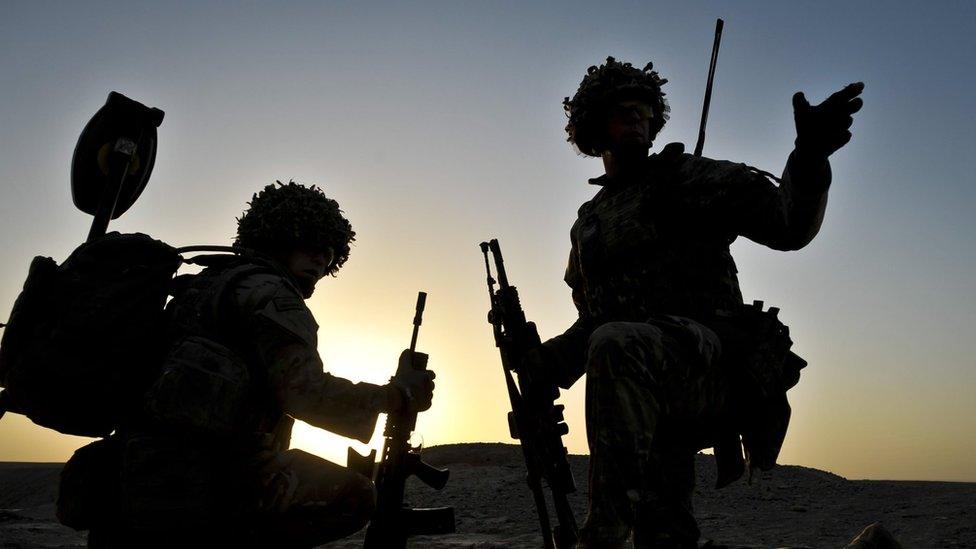Islamic State claims Kabul's latest deadly attacks
- Published
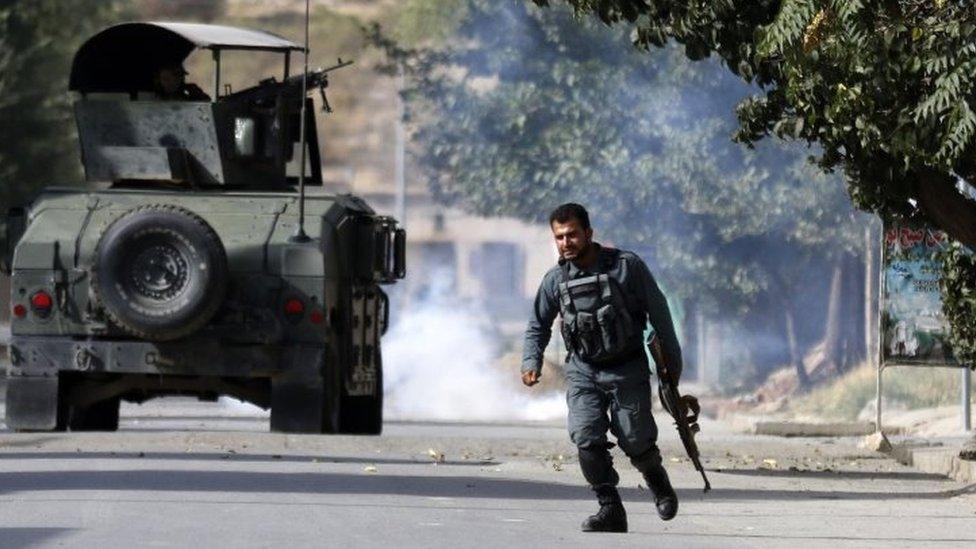
Afghan officials at least two attackers were killed at Kabul's intelligence training centre
Militants from the Islamic State (IS) group have said they were behind two recent attacks in the Afghan capital Kabul in which dozens of people died.
On Wednesday, 48 people were killed in the bombing of an education centre. Most of them were students studying for university entrance exams.
On Thursday, a training centre for the intelligence services was attacked.
IS said it carried out the "commando" operation and claimed to have caused high casualties.
Afghan officials said at least two militants were killed but did not mention any other deaths or injuries.
Also on Wednesday, Taliban militants said they could no longer guarantee safe passage for Red Cross staff working in Afghanistan, amid a row over the treatment of Taliban prisoners in a jail in Kabul.
What is known about the two attacks?
IS claimed the attacks via its media outlet Amaq.
The militants said about 110 people were either killed or wounded in Thursday's attack that began in the morning.
Meanwhile, Kabul police spokesman Hashmat Stanekzai said the attackers had fired rocket-propelled grenades as well as automatic rifles, and that security forces had held back from assaulting the building where the gunmen had taken position, Reuters reports.
After some seven hours, officials said the two attackers were killed.
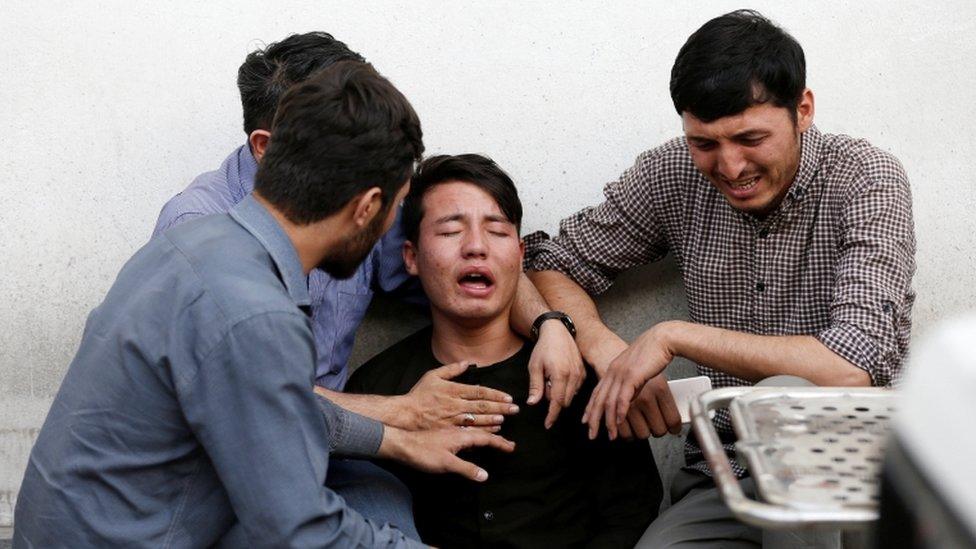
Teaching was under way when the bomb went off at the education centre
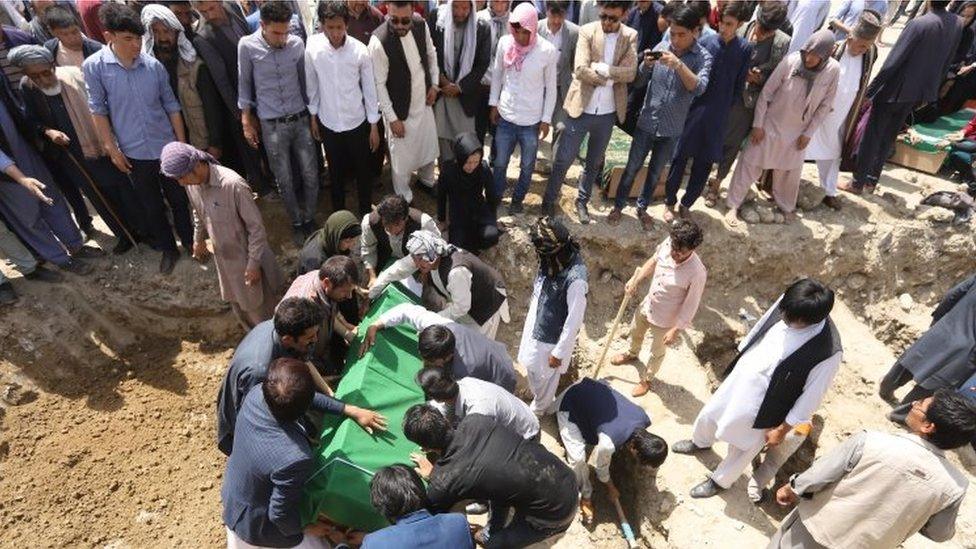
Mass burials were held on Thursday
Wednesday's attack on the education centre took place at about 16:00 local time (11:30 GMT).
Afghan police said a suicide bomber walked into the education centre and detonated his explosive belt.
At least 48 people were killed and another 67 injured.
"Most of the boys at the educational centre have been killed," Sayed Ali, who witnessed the blast, was quoted as saying by Reuters.
"It was horrific and many of the students were torn to pieces."
Afghanistan has experienced a recent upsurge in militant violence, including a major Taliban assault on the eastern city of Ghazni.
At least 100 members of the security forces were killed in the fighting at Ghazni, officials have said.
The UN has warned that as many as 150 civilians may have also been killed.
BBC Pashto journalist Assadullah Jalalzai wrote his account of living three days there under siege before he was able to escape.
After five days of fighting, Afghan security forces have now regained control of the city, with Taliban fighters pulling out.
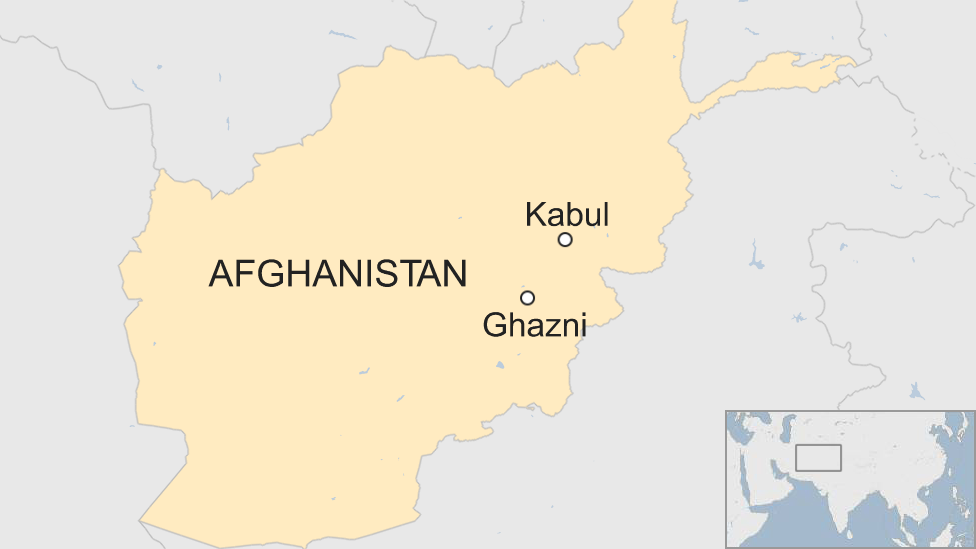
- Published15 July 2018
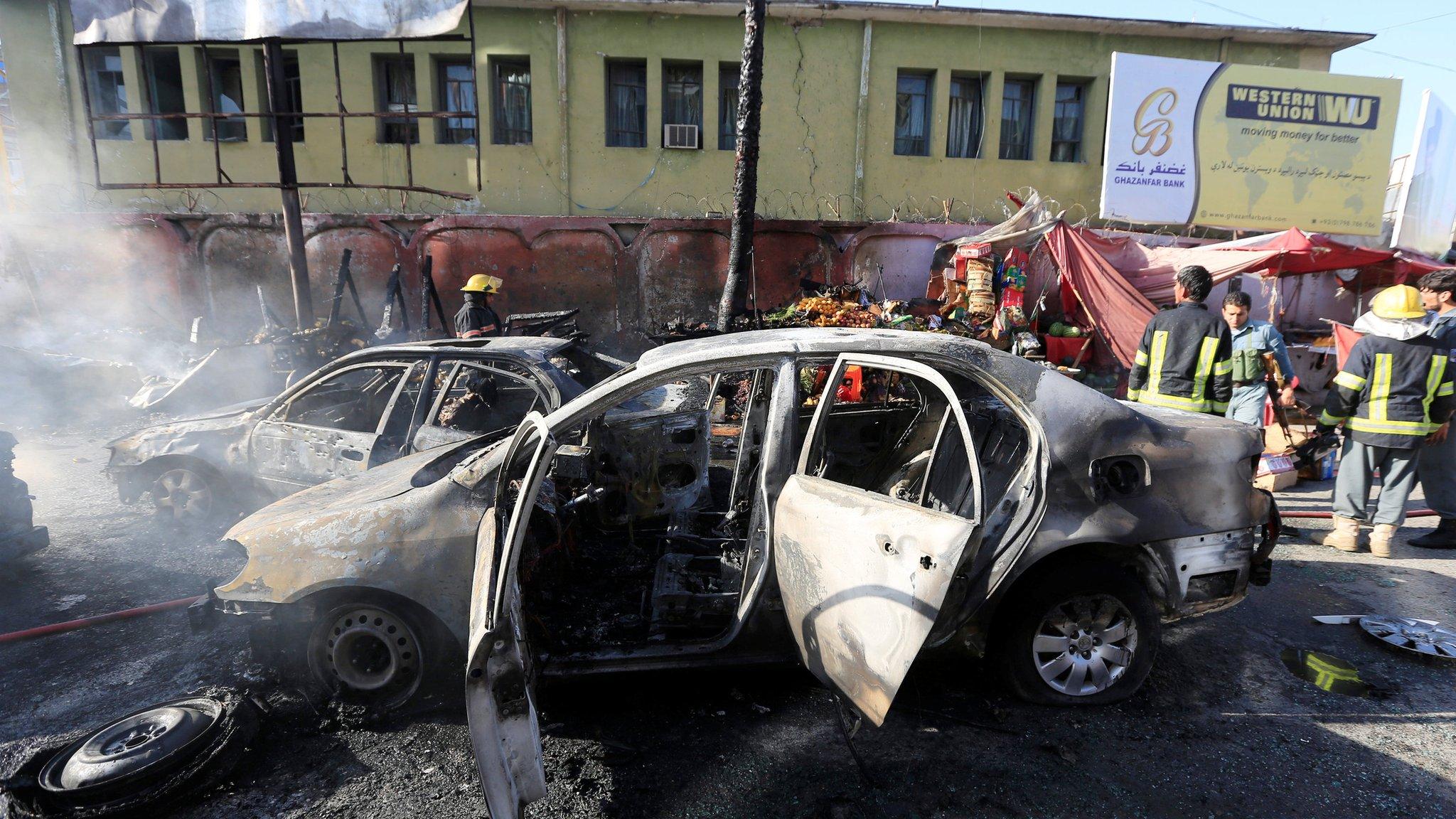
- Published15 August 2018
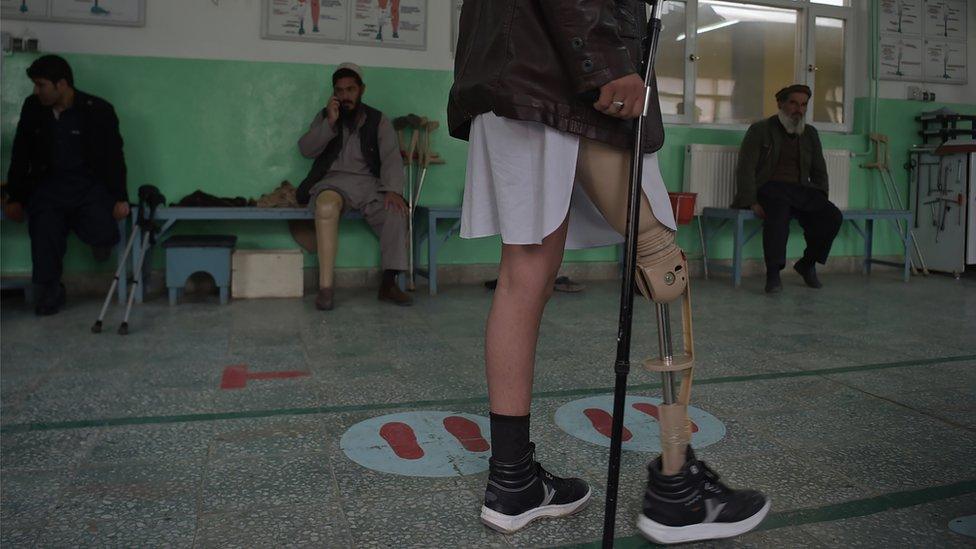
- Published13 August 2018
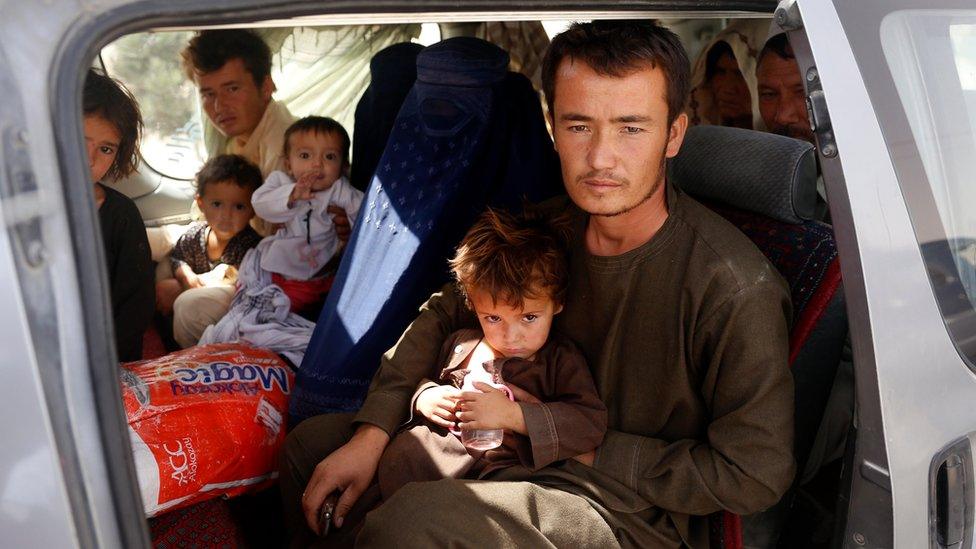
- Published13 August 2018
